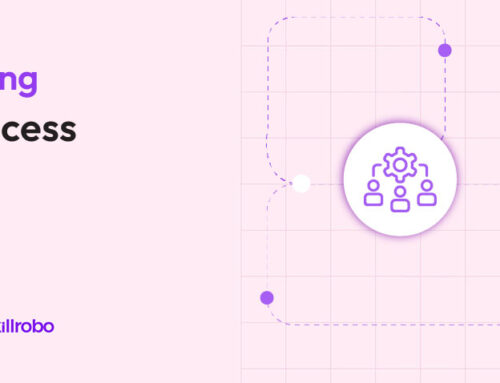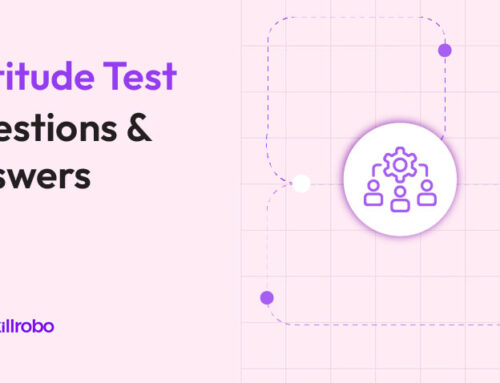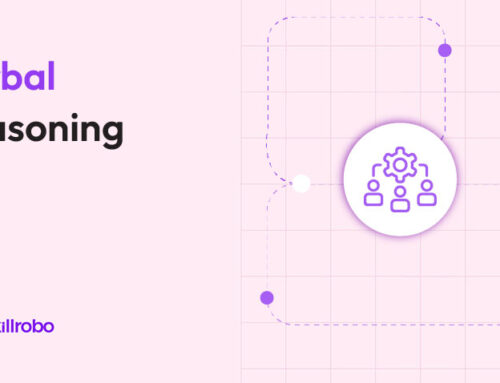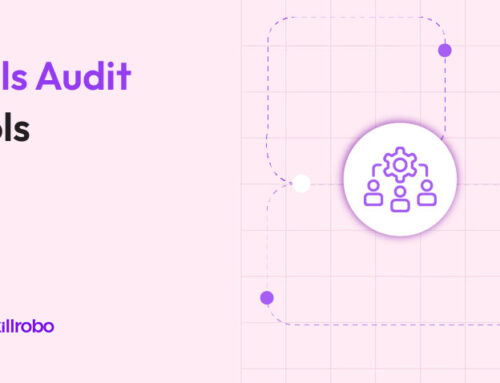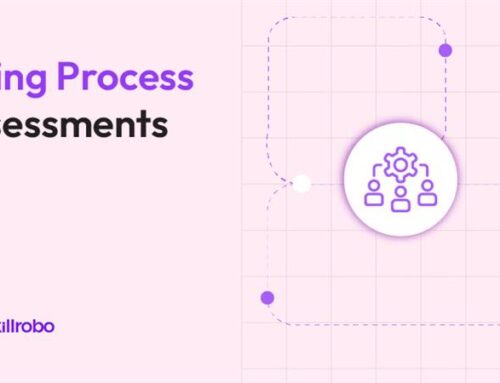Table of Contents
Related articles
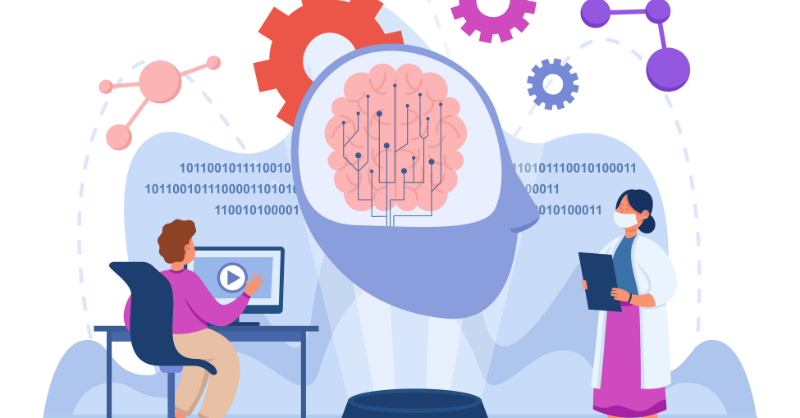
The core component of recruiting is figuring out how a candidate will perform on the job. Nevertheless, figuring that out is the difficult part. For instance, does a candidate have the capacity to use mental processes to solve complicated challenges at work or to pick up new abilities while employed? How can you tell if a candidate can make wise choices under extreme stress? Cognitive tests offer solutions to these issues.
Cognitive ability assessments, also known as General Mental Ability (GMA) assessments, are highly accurate predictors of job performance for vocations at all levels. Due to this, employers from all sectors of the economy evaluate the cognitive abilities of potential employees using cognitive assessments. These tests have quantifiable and obvious advantages.
This comprehensive guide will explain the specifics of cognitive assessments used in hiring and introduce the most prevalent cognitive tests that recruiters and hiring managers use when recruiting applicants.
What are Cognitive Assessment Tests?
Cognitive assessment tests are one type of pre-employment testing strategy that gauges each cognitive talent. These tests are standardized measures that assess an individual’s cognitive abilities and identify any cognitive impairments or strengths.
These tests are designed to evaluate different aspects of cognitive functioning, such as attention, memory, language, problem-solving, and decision-making. It is critical to assess cognitive capacity in order to predict how well a prospective employee would adhere to instructions, complete training, and interact with coworkers.
Candidates with untapped potential, especially those who may not have impressive resumes but possess all the necessary qualities to succeed in an organization, can be found by measuring their cognitive capacities. In order to assist firms in employing smart, qualified workers at all levels of the organizational hierarchy, these tests are especially helpful when interviewing candidates for entry-level roles.
What do Cognitive Assessment Tests Measure?
Cognitive assessment tests measure different aspects of cognitive functioning. Here are some of the cognitive functions that cognitive assessment tests may evaluate:
- Memory tests: This test assesses an individual’s ability to remember and recall information. Memory tests may evaluate different types of memory, such as short-term memory, long-term memory, working memory, and episodic memory.
- Attention tests: These evaluate an individual’s ability to focus and sustain attention. Attention tests may assess different types of attention, such as selective attention, divided attention, and sustained attention.
- Language tests: The language tests assess an individual’s ability to understand and use language. Language tests may evaluate different aspects of language, such as vocabulary, grammar, and comprehension.
- Problem-solving test: It can assess an individual’s ability to solve complex problems. Problem-solving tests may evaluate different types of problem-solving, such as deductive reasoning, inductive reasoning, and decision-making.
- Decision-making Test: Decision-making tests evaluate an individual’s ability to make decisions based on available information. Decision-making tests may assess different aspects of decision-making, such as risk appetite and decision-making under pressure.
Why Should Recruiters Use Cognitive Tests for Hiring?
Cognitive tests highlight a candidate’s skills that don’t appear on their resume or cover letter. These exams are essential for identifying top talent, streamlining and accelerating the hiring process, and candidate screening evaluations. Here are some reasons why recruiters should use it for hiring:
- Predict job performance: Cognitive testing can help predict a candidate’s job performance by assessing their ability to learn and adapt to new situations. This can be particularly useful in roles that require problem-solving, critical thinking, and decision-making.
- Reduce bias: These tests are objective measures that can reduce the impact of bias in the hiring process. By using standardized tests, recruiters can ensure that each candidate is evaluated on the same set of criteria, reducing the influence of subjective factors such as personal biases or prejudices.
- Save time and resources: It can also help recruiters save time and resources by screening out candidates who are unlikely to be a good fit for the role. This can streamline the hiring process and allow recruiters to focus their efforts on the most promising candidates.
- Improve diversity and inclusion: By using cognitive tests, recruiters can identify candidates who may have been overlooked based on factors such as their educational background or work experience. This can help improve diversity and inclusion in the hiring process by giving candidates from diverse backgrounds an equal opportunity to demonstrate their abilities.
Types of Cognitive Tests
Intelligence Tests
These tests are designed to measure an individual’s general cognitive abilities, including verbal and nonverbal reasoning, spatial perception, and memory. Examples of intelligence tests include the Wechsler Adult Intelligence Scale (WAIS), the Kaufman Assessment Battery for Children (KABC), and the Stanford-Binet Intelligence Scale.
Learning Agility Test
Learning agility is a critical competency that refers to an individual’s ability to quickly learn from experience, adapt to new situations, and apply new knowledge and skills to solve problems. A learning agility test aims to evaluate a person’s capacity for taking experience-based learning and applying it to novel circumstances.
There are several types of learning agility tests, but most assess a person’s ability to:
- Learn from experience: This test evaluates the ability to extract meaningful insights from past experiences and apply them to new situations.
- Deal with ambiguity: This test evaluates the ability to navigate unfamiliar or uncertain situations, make sense of complex information, and generate creative solutions.
- Embrace change: This test evaluates the ability to adapt to new circumstances, be open to new ideas, and stay flexible in the face of challenges.
- Take risks: This test evaluates the ability to take calculated risks, experiment with new approaches, and learn from failures.
- Collaborate effectively: This test evaluates the ability to work well with others, build relationships, and leverage diverse perspectives to solve problems.
Logical Reasoning Tests
A logical reasoning test is a type of cognitive test that assesses an individual’s ability to analyze and solve problems using logical thinking. This type of test typically measures an individual’s ability to draw conclusions from given information, recognize patterns, and make inferences based on logical reasoning.
Numerical Reasoning Tests
A numerical reasoning test examines a person’s capacity for comprehending and analyzing numerical data, resolving mathematical equations, and making judgments in light of quantitative information. This kind of exam frequently contains problems that require the use of fundamental math concepts, algebra, geometry, and statistical analysis.
Numerical reasoning tests may include different types of questions, such as:
- Data interpretation: This type of question involves analyzing numerical data presented in the form of graphs, tables, or charts, and answering questions based on the information presented.
- Computational: This type of question involves performing basic arithmetic, algebraic, or geometric calculations to solve a problem.
- Logical reasoning: This type of question involves using mathematical principles to reason and solve problems logically.
- Financial reasoning: This type of question involves analyzing financial data, such as profit and loss statements, balance sheets, or cash flow statements, to make decisions or recommendations.
Language Tests
A language aptitude test is a form of cognitive evaluation that evaluates a person’s ability to pick up and speak a foreign language. An individual’s capacity to learn and apply grammatical rules, vocabulary, pronunciation, and comprehension skills are often evaluated by this kind of test.
Spatial Ability Test
The ability to visualize, manipulate, and evaluate spatial information is measured by a spatial ability test, a sort of cognitive evaluation. This kind of test frequently includes questions that require spatial orientation, mental rotation, spatial visualization, and spatial relations.
Speed and Accuracy Test
A person’s capacity to analyze and make judgments is significantly influenced by their perceptual speed and accuracy, a short-term memory-related cognitive talent. Assessments of perception speed and accuracy gauge a candidate’s capacity for information acquisition, processing, retention, and articulation. They assess a candidate’s capacity to complete challenging activities efficiently in a constrained amount of time.
Why are Cognitive Assessment Tests Important?
These tests are important tools in evaluating an individual’s cognitive abilities. They can help identify strengths and weaknesses in cognitive functioning and assist in developing appropriate interventions or treatment plans.
- Cognitive assessment tests are used in educational settings to identify students who may require additional support or accommodations to succeed academically.
- In clinical settings, cognitive assessment tests are used to diagnose and monitor cognitive impairments, such as dementia or traumatic brain injury.
- In occupational settings, cognitive assessment tests are used to evaluate an individual’s fitness for a particular job or to identify areas for improvement in job performance.
Conclusion
An organization’s most valuable asset is its workforce. Every organization is built on the knowledge, experience, and abilities of its people, and maintaining high productivity depends on these factors. Cognitive testing methods are used to identify individuals with the potential to thrive and learn new skills more quickly in order to achieve at work.
Cognitive tests are a great tool to use to increase the quality of hires and the effectiveness of your recruitment process overall when used wisely.
Using it early on in the process could significantly raise hiring quality and overall employee engagement. Also, you must carefully analyze the types of tests that best fit your hiring objectives if you want to make the most of cognitive evaluations in your company.
Skillrobo’s cognitive assessment test will assess an individual’s cognitive abilities and identify any cognitive impairments or strengths while hiring.
Unlock Your Candidate’s Cognitive Potential with Skillrobo by clicking Here!

The core component of recruiting is figuring out how a candidate will perform on the job. Nevertheless, figuring that out is the difficult part. For instance, does a candidate have the capacity to use mental processes to solve complicated challenges at work or to pick up new abilities while employed? How can you tell if a candidate can make wise choices under extreme stress? Cognitive tests offer solutions to these issues.
Cognitive ability assessments, also known as General Mental Ability (GMA) assessments, are highly accurate predictors of job performance for vocations at all levels. Due to this, employers from all sectors of the economy evaluate the cognitive abilities of potential employees using cognitive assessments. These tests have quantifiable and obvious advantages.
This comprehensive guide will explain the specifics of cognitive assessments used in hiring and introduce the most prevalent cognitive tests that recruiters and hiring managers use when recruiting applicants.
What are Cognitive Assessment Tests?
Cognitive assessment tests are one type of pre-employment testing strategy that gauges each cognitive talent. These tests are standardized measures that assess an individual’s cognitive abilities and identify any cognitive impairments or strengths.
These tests are designed to evaluate different aspects of cognitive functioning, such as attention, memory, language, problem-solving, and decision-making. It is critical to assess cognitive capacity in order to predict how well a prospective employee would adhere to instructions, complete training, and interact with coworkers.
Candidates with untapped potential, especially those who may not have impressive resumes but possess all the necessary qualities to succeed in an organization, can be found by measuring their cognitive capacities. In order to assist firms in employing smart, qualified workers at all levels of the organizational hierarchy, these tests are especially helpful when interviewing candidates for entry-level roles.
What do Cognitive Assessment Tests Measure?
Cognitive assessment tests measure different aspects of cognitive functioning. Here are some of the cognitive functions that cognitive assessment tests may evaluate:
- Memory tests: This test assesses an individual’s ability to remember and recall information. Memory tests may evaluate different types of memory, such as short-term memory, long-term memory, working memory, and episodic memory.
- Attention tests: These evaluate an individual’s ability to focus and sustain attention. Attention tests may assess different types of attention, such as selective attention, divided attention, and sustained attention.
- Language tests: The language tests assess an individual’s ability to understand and use language. Language tests may evaluate different aspects of language, such as vocabulary, grammar, and comprehension.
- Problem-solving test: It can assess an individual’s ability to solve complex problems. Problem-solving tests may evaluate different types of problem-solving, such as deductive reasoning, inductive reasoning, and decision-making.
- Decision-making Test: Decision-making tests evaluate an individual’s ability to make decisions based on available information. Decision-making tests may assess different aspects of decision-making, such as risk appetite and decision-making under pressure.
Why Should Recruiters Use Cognitive Tests for Hiring?
Cognitive tests highlight a candidate’s skills that don’t appear on their resume or cover letter. These exams are essential for identifying top talent, streamlining and accelerating the hiring process, and candidate screening evaluations. Here are some reasons why recruiters should use it for hiring:
- Predict job performance: Cognitive testing can help predict a candidate’s job performance by assessing their ability to learn and adapt to new situations. This can be particularly useful in roles that require problem-solving, critical thinking, and decision-making.
- Reduce bias: These tests are objective measures that can reduce the impact of bias in the hiring process. By using standardized tests, recruiters can ensure that each candidate is evaluated on the same set of criteria, reducing the influence of subjective factors such as personal biases or prejudices.
- Save time and resources: It can also help recruiters save time and resources by screening out candidates who are unlikely to be a good fit for the role. This can streamline the hiring process and allow recruiters to focus their efforts on the most promising candidates.
- Improve diversity and inclusion: By using cognitive tests, recruiters can identify candidates who may have been overlooked based on factors such as their educational background or work experience. This can help improve diversity and inclusion in the hiring process by giving candidates from diverse backgrounds an equal opportunity to demonstrate their abilities.
Types of Cognitive Tests
Intelligence Tests
These tests are designed to measure an individual’s general cognitive abilities, including verbal and nonverbal reasoning, spatial perception, and memory. Examples of intelligence tests include the Wechsler Adult Intelligence Scale (WAIS), the Kaufman Assessment Battery for Children (KABC), and the Stanford-Binet Intelligence Scale.
Learning Agility Test
Learning agility is a critical competency that refers to an individual’s ability to quickly learn from experience, adapt to new situations, and apply new knowledge and skills to solve problems. A learning agility test aims to evaluate a person’s capacity for taking experience-based learning and applying it to novel circumstances.
There are several types of learning agility tests, but most assess a person’s ability to:
- Learn from experience: This test evaluates the ability to extract meaningful insights from past experiences and apply them to new situations.
- Deal with ambiguity: This test evaluates the ability to navigate unfamiliar or uncertain situations, make sense of complex information, and generate creative solutions.
- Embrace change: This test evaluates the ability to adapt to new circumstances, be open to new ideas, and stay flexible in the face of challenges.
- Take risks: This test evaluates the ability to take calculated risks, experiment with new approaches, and learn from failures.
- Collaborate effectively: This test evaluates the ability to work well with others, build relationships, and leverage diverse perspectives to solve problems.
Logical Reasoning Tests
A logical reasoning test is a type of cognitive test that assesses an individual’s ability to analyze and solve problems using logical thinking. This type of test typically measures an individual’s ability to draw conclusions from given information, recognize patterns, and make inferences based on logical reasoning.
Numerical Reasoning Tests
A numerical reasoning test examines a person’s capacity for comprehending and analyzing numerical data, resolving mathematical equations, and making judgments in light of quantitative information. This kind of exam frequently contains problems that require the use of fundamental math concepts, algebra, geometry, and statistical analysis.
Numerical reasoning tests may include different types of questions, such as:
- Data interpretation: This type of question involves analyzing numerical data presented in the form of graphs, tables, or charts, and answering questions based on the information presented.
- Computational: This type of question involves performing basic arithmetic, algebraic, or geometric calculations to solve a problem.
- Logical reasoning: This type of question involves using mathematical principles to reason and solve problems logically.
- Financial reasoning: This type of question involves analyzing financial data, such as profit and loss statements, balance sheets, or cash flow statements, to make decisions or recommendations.
Language Tests
A language aptitude test is a form of cognitive evaluation that evaluates a person’s ability to pick up and speak a foreign language. An individual’s capacity to learn and apply grammatical rules, vocabulary, pronunciation, and comprehension skills are often evaluated by this kind of test.
Spatial Ability Test
The ability to visualize, manipulate, and evaluate spatial information is measured by a spatial ability test, a sort of cognitive evaluation. This kind of test frequently includes questions that require spatial orientation, mental rotation, spatial visualization, and spatial relations.
Speed and Accuracy Test
A person’s capacity to analyze and make judgments is significantly influenced by their perceptual speed and accuracy, a short-term memory-related cognitive talent. Assessments of perception speed and accuracy gauge a candidate’s capacity for information acquisition, processing, retention, and articulation. They assess a candidate’s capacity to complete challenging activities efficiently in a constrained amount of time.
Why are Cognitive Assessment Tests Important?
These tests are important tools in evaluating an individual’s cognitive abilities. They can help identify strengths and weaknesses in cognitive functioning and assist in developing appropriate interventions or treatment plans.
- Cognitive assessment tests are used in educational settings to identify students who may require additional support or accommodations to succeed academically.
- In clinical settings, cognitive assessment tests are used to diagnose and monitor cognitive impairments, such as dementia or traumatic brain injury.
- In occupational settings, cognitive assessment tests are used to evaluate an individual’s fitness for a particular job or to identify areas for improvement in job performance.
Conclusion
An organization’s most valuable asset is its workforce. Every organization is built on the knowledge, experience, and abilities of its people, and maintaining high productivity depends on these factors. Cognitive testing methods are used to identify individuals with the potential to thrive and learn new skills more quickly in order to achieve at work.
Cognitive tests are a great tool to use to increase the quality of hires and the effectiveness of your recruitment process overall when used wisely.
Using it early on in the process could significantly raise hiring quality and overall employee engagement. Also, you must carefully analyze the types of tests that best fit your hiring objectives if you want to make the most of cognitive evaluations in your company.
Skillrobo’s cognitive assessment test will assess an individual’s cognitive abilities and identify any cognitive impairments or strengths while hiring.
Unlock Your Candidate’s Cognitive Potential with Skillrobo by clicking Here!



